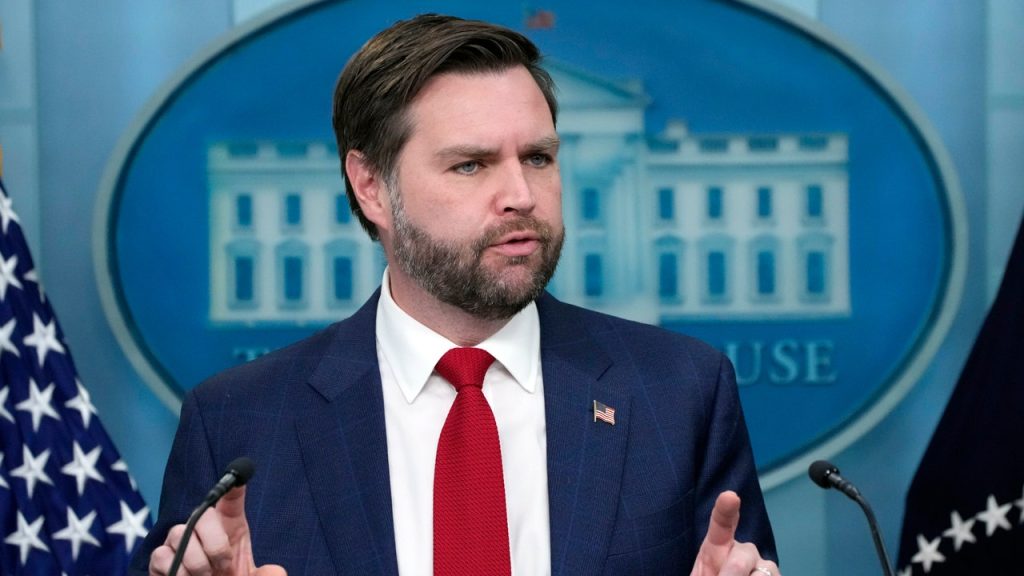In a recent AI summit held in Paris, Vice President JD Vance emphasized the United States’ commitment to leading the charge in artificial intelligence (AI) innovation. He cautioned global leaders that the European Union’s strict regulatory measures could hinder technological advancements. Meanwhile, Sam Altman, CEO of OpenAI, responded to Elon Musk’s attempts to purchase the company, stating that OpenAI is not for sale, as discussions centered on the implications of AI and potential authoritarian misuse emerged. The summit showcased significant advancements in AI technologies and highlighted the competitive landscape between the U.S. and international players.
| Article Subheadings |
|---|
| 1) Overview of the AI Summit in Paris |
| 2) JD Vance’s Remarks on AI Regulation |
| 3) Sam Altman on Musk’s Acquisition Attempts |
| 4) Concerns Over AI and Authoritarianism |
| 5) Advances in AI Technology and Global Competitiveness |
Overview of the AI Summit in Paris
The AI summit in Paris attracted numerous leaders from the technological and political spheres. This high-profile event offered a platform for discussing cutting-edge developments in AI while addressing significant ethical and regulatory issues. It focused on collaborative efforts among nations, highlighting the importance of maintaining transparency and accountability in AI technology. Various stakeholders, including diplomats and industry executives, engaged in dialogues about the future of AI. This summit marked an important step toward forging alignment across countries on the responsible use of AI in different sectors.
JD Vance’s Remarks on AI Regulation
During his keynote speech at the summit, Vice President JD Vance expressed a commitment to ensuring that the United States remains at the forefront of AI development. He articulated concerns about the European Union’s stringent regulatory measures, suggesting that such policies could stifle innovation. This critique was framed within a broader discussion on how regulatory frameworks should adapt to fast-evolving technologies without choking their potential. Vance asserted, “AI must be free from ideological bias,” emphasizing the need for a balanced approach that does not lead to censorship.
Sam Altman on Musk’s Acquisition Attempts
In a related discussion, Sam Altman, CEO of OpenAI, addressed rumors regarding Elon Musk‘s efforts to buy OpenAI. He characterized Musk’s intentions as possibly an effort to slow down development, saying that the company is not currently for sale. Altman’s comments spotlighted the competitive nature of the AI industry and the challenges of maintaining independence while navigating external pressures from high-profile investors. This exchange encapsulated the ongoing tension within the tech sector, where ownership and innovation are closely intertwined.
Concerns Over AI and Authoritarianism
Furthermore, Altman raised alarms regarding the darker potential of AI technologies, especially in the hands of authoritarian regimes. He explained how advancements in artificial general intelligence (AGI) could produce significant benefits for society, such as reduced costs for essential goods. However, there is a dual risk that these technologies could be employed to enhance surveillance and control measures by oppressive governments. The discussion around potential misuse highlighted the need for international regulations that can safeguard human rights while promoting innovation.
Advances in AI Technology and Global Competitiveness
The summit also underscored notable advancements in AI technology. Attendees showcased a range of applications, from autonomous systems to translation tools, which have seen rapid development. The competitive landscape is shifting, with countries around the world investing heavily in AI research and development. This has intensified the race for technological supremacy, with the U.S. aiming to solidify its position against emerging tech powerhouses globally. The conversation at the summit reinforced the idea that fostering innovation while managing its implications will be critical for future success.
| No. | Key Points |
|---|---|
| 1 | Vice President JD Vance emphasized U.S. leadership in AI and warned against rigid regulations that could hinder progress. |
| 2 | Sam Altman stated that OpenAI is not for sale and responded to Elon Musk’s acquisition efforts. |
| 3 | Concerns about the potential misuse of AI technologies by authoritarian governments were highlighted during discussions. |
| 4 | The summit showcased significant technological advancements and applications in AI, indicating fierce global competition. |
| 5 | The need for international regulatory frameworks to balance innovation with ethical concerns was a pivotal topic of dialogue. |
Summary
The AI summit in Paris served as a critical forum for global leaders and industry experts to discuss the future of artificial intelligence amid challenges and opportunities. Key messages from JD Vance and Sam Altman illustrated the ongoing tension between innovation and regulation, highlighting the potential risks of unchecked technological growth. As nations push for leadership in AI, establishing comprehensive guidelines will be essential both for driving advancements and protecting societal values against misuse. The outcomes of this summit may significantly shape the trajectory of AI development moving forward.
Frequently Asked Questions
Question: What are the major concerns regarding AI technologies?
The primary concerns surrounding AI technologies include the potential for misuse by authoritarian governments, the ethical implications of AI biases, and the impact of stringent regulations on innovation. Industry leaders are calling for frameworks that promote responsible use while ensuring the protection of human rights.
Question: How does the U.S. aim to maintain its leadership in AI?
The U.S. aims to maintain its leadership in AI through continued investment in research and development, fostering innovation within the private sector, and promoting international collaboration to set standards and ethical guidelines.
Question: What impact does AI have on global competitiveness?
AI significantly influences global competitiveness by driving advancements in technology that can enhance productivity and economic growth. As countries race to develop cutting-edge AI applications, staying ahead requires a mix of talent, investment, and strategic policy implementation.


